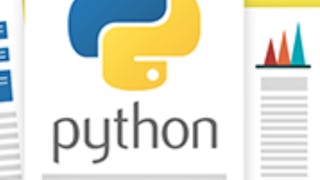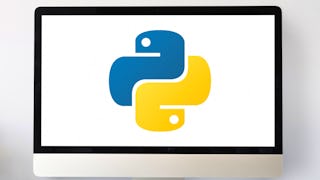Filter by
SubjectRequired
LanguageRequired
The language used throughout the course, in both instruction and assessments.
Learning ProductRequired
LevelRequired
DurationRequired
SkillsRequired
SubtitlesRequired
EducatorRequired
Explore the Numerical Analysis Course Catalog
 Status: Free Trial
Status: Free TrialThe Hong Kong University of Science and Technology
Skills you'll gain: Matlab, Numerical Analysis, Engineering Calculations, Linear Algebra, Engineering Analysis, Applied Mathematics, Differential Equations, Integral Calculus, Scripting, Calculus, Computational Thinking, Plot (Graphics), Algorithms
 Status: Free Trial
Status: Free TrialThe Hong Kong University of Science and Technology
Skills you'll gain: Linear Algebra, Matlab, Differential Equations, Integral Calculus, Numerical Analysis, Engineering Calculations, Engineering Analysis, Applied Mathematics, Finite Element Methods, Calculus, Algebra, Geometry, Advanced Mathematics, Engineering, General Mathematics, Mathematical Modeling, Mechanical Engineering, Scripting, Vibrations, Simulation and Simulation Software
 Status: NewStatus: Preview
Status: NewStatus: PreviewUniversity of Colorado Boulder
Skills you'll gain: Scientific Visualization, NumPy, Data Visualization, Matplotlib, Debugging, Numerical Analysis, Engineering Calculations, Integrated Development Environments, Programming Principles, Computational Thinking, Engineering Analysis, Data Analysis, Computer Programming
 Status: Free Trial
Status: Free TrialSkills you'll gain: Data Wrangling, Predictive Modeling, Exploratory Data Analysis, Data Manipulation, Data Import/Export, Statistical Modeling, Data Analysis, Data Visualization, Regression Analysis, Visualization (Computer Graphics), Predictive Analytics, Data Cleansing, Correlation Analysis, Statistical Analysis, Pandas (Python Package), Machine Learning Methods, Descriptive Statistics, Python Programming
 Status: Free Trial
Status: Free TrialSkills you'll gain: Jupyter, Web Scraping, Python Programming, Data Collection, Object Oriented Programming (OOP), Pandas (Python Package), Programming Principles, Data Structures, NumPy, Data Processing, Data Manipulation, Application Programming Interface (API), Data Import/Export, Computer Programming, Data Analysis
 Status: Free Trial
Status: Free TrialUniversity of Colorado Boulder
Skills you'll gain: Integral Calculus, Numerical Analysis, Calculus, Data Science, Linear Algebra, Probability & Statistics, Statistics, Derivatives
What brings you to Coursera today?
 Status: Preview
Status: PreviewUniversity of Michigan
Skills you'll gain: Finite Element Methods, Engineering Analysis, Numerical Analysis, Mathematical Modeling, Mechanics, C++ (Programming Language)
 Status: Preview
Status: PreviewYale University
Skills you'll gain: Financial Market, Investment Banking, Portfolio Management, Finance, Capital Markets, Financial Services, Corporate Finance, Derivatives, Investments, Financial Regulation, Risk Management, Behavioral Economics, Equities, Underwriting, Securities (Finance), Lending and Underwriting, Market Dynamics, Governance, Insurance, Environmental Social And Corporate Governance (ESG)
 Status: NewStatus: Free Trial
Status: NewStatus: Free TrialGoogle
Skills you'll gain: Prompt Engineering, Generative AI, Large Language Modeling, Artificial Intelligence and Machine Learning (AI/ML), Productivity Software, Workforce Development, Applied Machine Learning, Business Solutions, Organizational Strategy, Business Process Automation, Social Studies, Innovation, Data Collection, Automation, Data Security, Human Machine Interfaces, Forecasting, Emerging Technologies, Analysis, Critical Thinking
 Status: Free Trial
Status: Free TrialUniversity of Pennsylvania
Skills you'll gain: Operations Management, Operational Efficiency, Process Management, Capacity Planning, Process Analysis, Finance, Process Improvement, Capital Budgeting, Return On Investment, Go To Market Strategy, Accrual Accounting, Financial Reporting, Product Development, Financial Accounting, Marketing Strategies, Branding, Marketing, Human Capital, Decision Making, Corporate Finance
 Status: Free Trial
Status: Free TrialUniversity of Pennsylvania
Skills you'll gain: Finance, Capital Budgeting, Financial Data, Return On Investment, Financial Reporting, Financial Statement Analysis, Risk Modeling, Mathematical Modeling, Regression Analysis, Predictive Modeling, Business Modeling, Spreadsheet Software, Financial Analysis, Cash Flows, Financial Modeling, Balance Sheet, Predictive Analytics, Google Sheets, Microsoft Excel, Corporate Finance
 Status: Free TrialStatus: AI skills
Status: Free TrialStatus: AI skillsGoogle
Skills you'll gain: Data Presentation, Data Storytelling, Data Cleansing, Data Visualization, Data Validation, Rmarkdown, Data Integrity, Interactive Data Visualization, Data Ethics, Dashboard, Ggplot2, Data Quality, Stakeholder Communications, Data Literacy, Data Visualization Software, Data Analysis, SQL, Interviewing Skills, Analytical Skills, Applicant Tracking Systems
In summary, here are 10 of our most popular numerical analysis courses
- Numerical Methods for Engineers: The Hong Kong University of Science and Technology
- Mathematics for Engineers: The Hong Kong University of Science and Technology
- Introduction to Python for Scientific Computing: University of Colorado Boulder
- Data Analysis with Python: IBM
- Python for Data Science, AI & Development: IBM
- Integral Calculus and Numerical Analysis for Data Science: University of Colorado Boulder
- The Finite Element Method for Problems in Physics: University of Michigan
- Financial Markets: Yale University
- Google AI Essentials: Google
- Business Foundations: University of Pennsylvania










